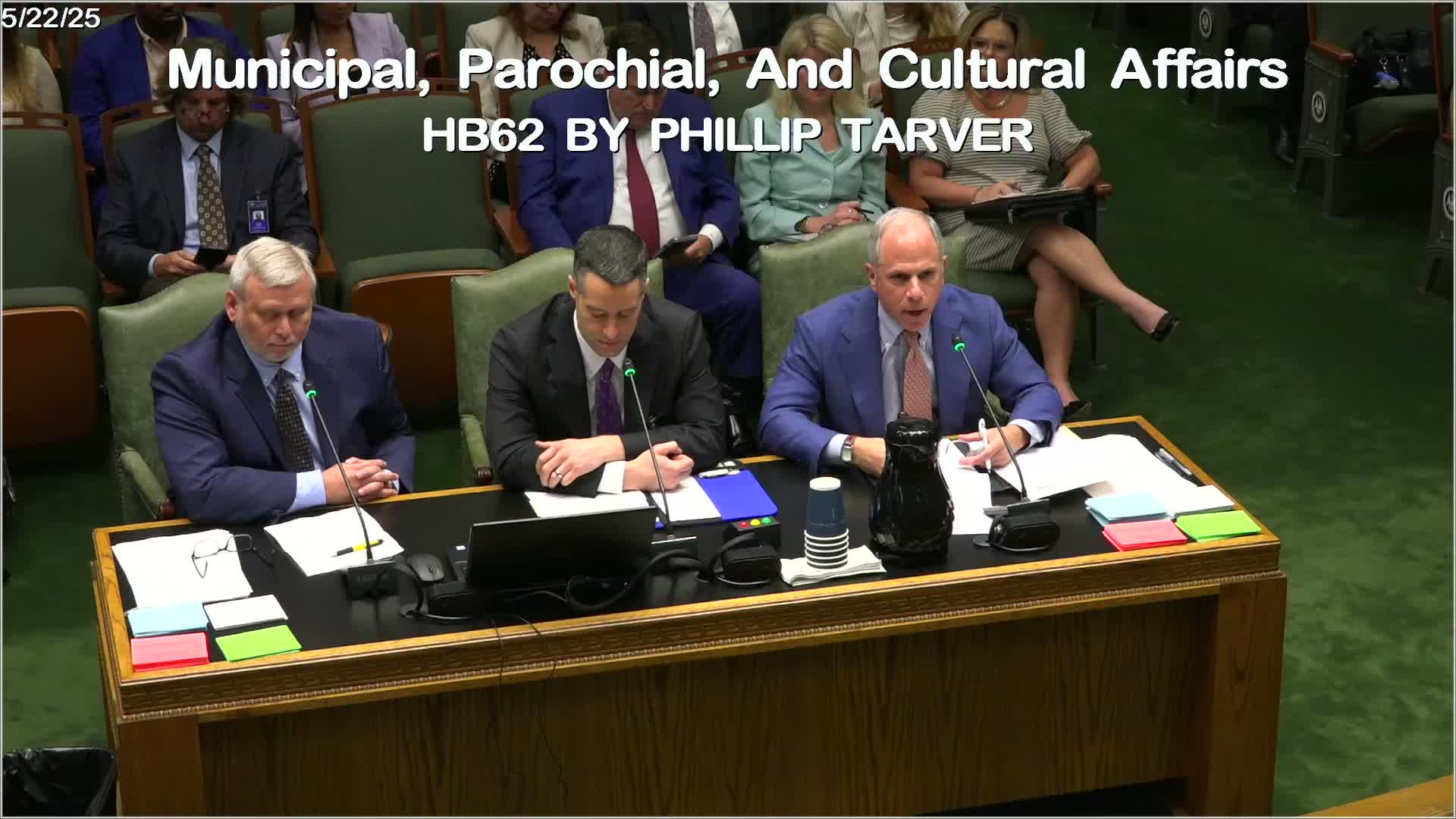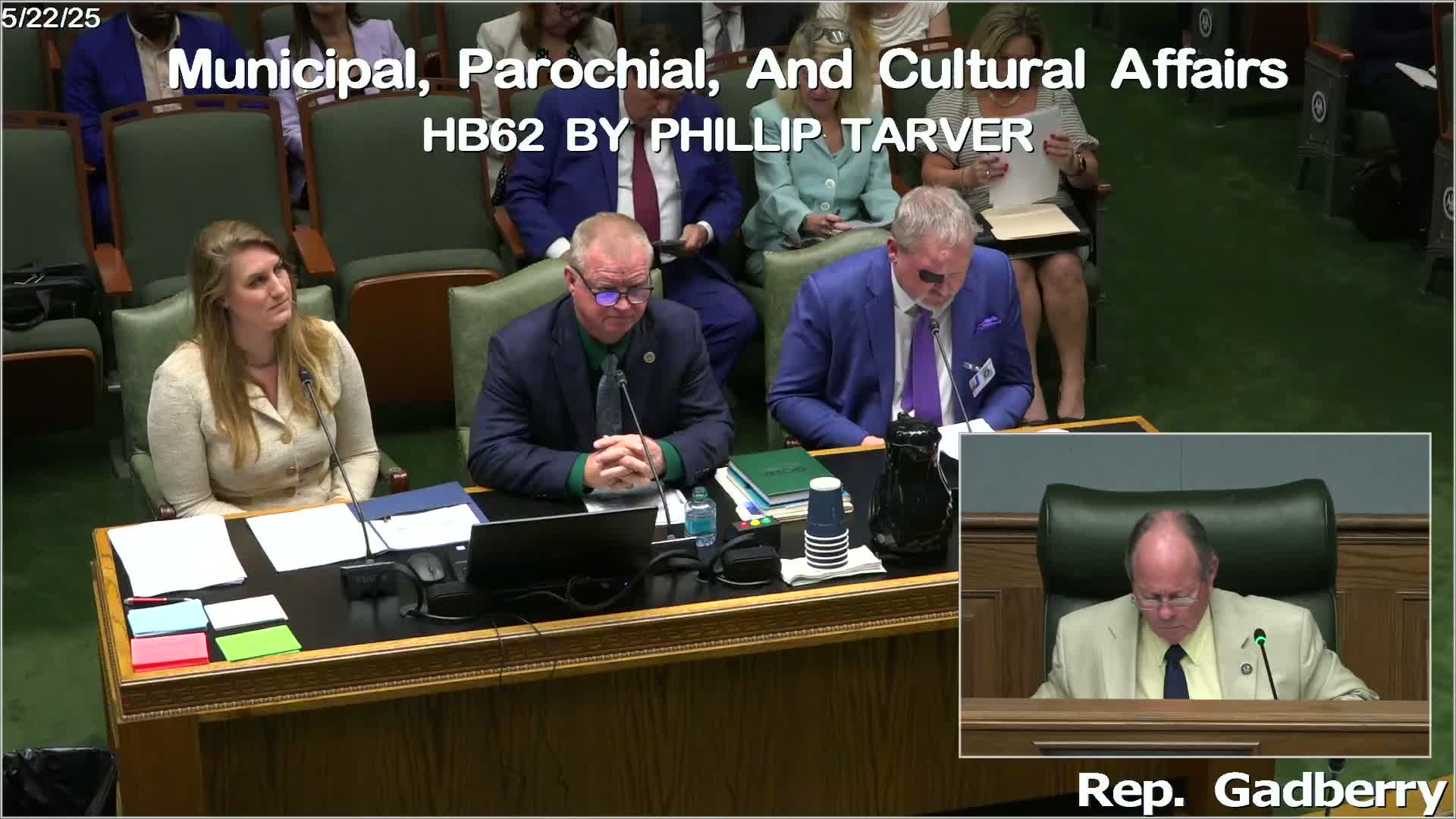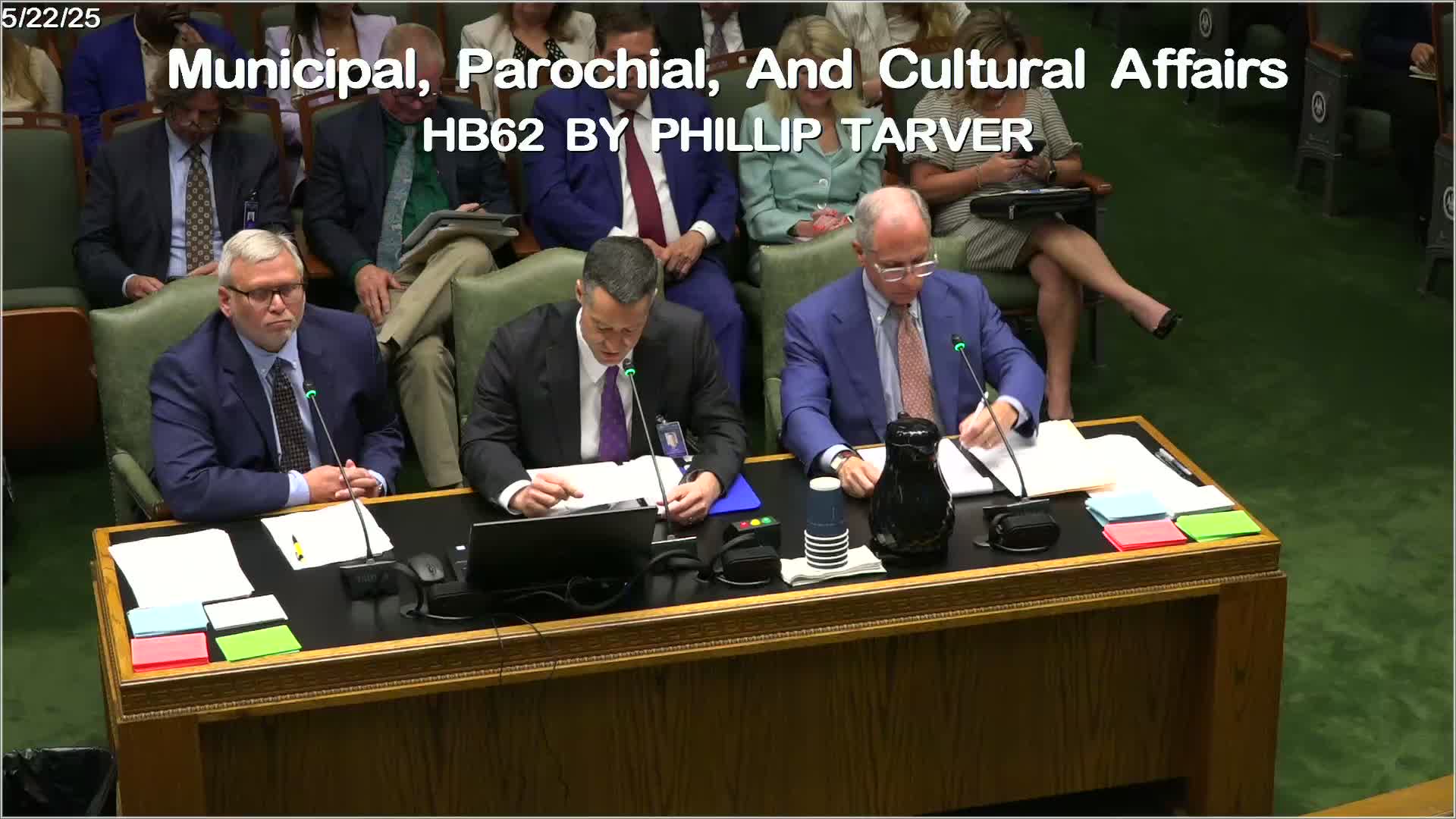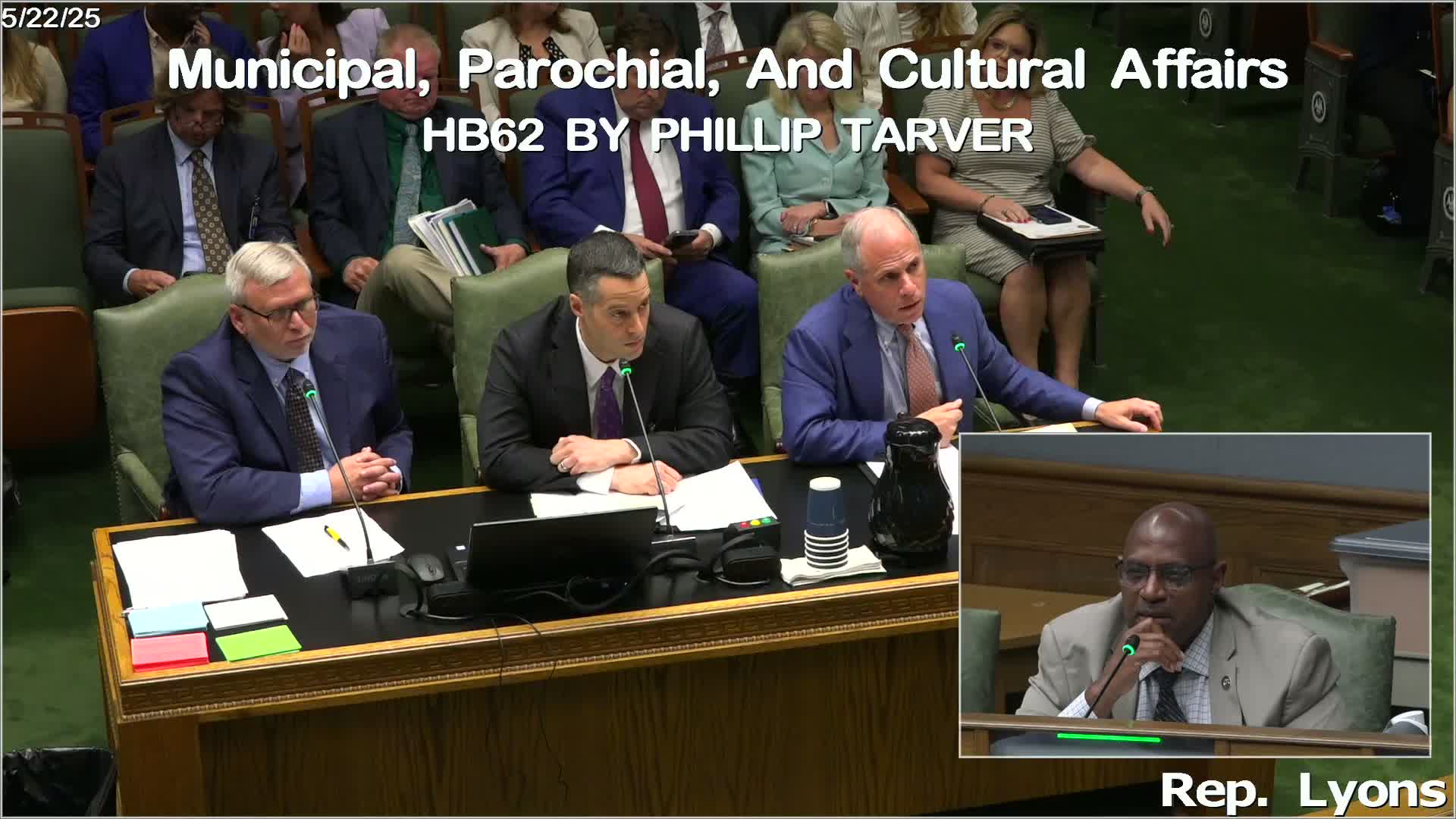Article not found
This article is no longer available. But don't worry—we've gathered other articles that discuss the same topic.

Committee approves bill letting New Orleans Sewer & Water board elect its president, hire counsel and modernize governance language

Committee pauses bill allowing parishes to authorize commercial CPACE financing after hours of debate

Lieutenant governor’s museum director bill advances after debate over qualifications and local concerns

